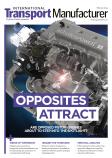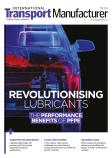A new self-contained cube simulator, powerful enough to validate driver assistance and autonomous technologies in today’s vehicles, has been unveiled by Ansible Motion. Thanks to its compact footprint and computational architecture, the new Theta C driving simulator offers OEMs, Tier 1s, research institutes and industry bodies a more immersive and car-like, environment than is currently available from other compact simulators. It also avoids the complexity and facility challenges typically associated with automotive test equipment of this accuracy and calibre.
Ansible Motion’s principle of clean-sheet design and innovation has fuelled the introduction of the most immersive environment ever for a compact Driver-in-the-Loop (DIL) simulator, whilst making the practical operation much easier. The key engineering class componentry required for human immersion is presented inside an approximately 2m x 2m x 2m cube. The Theta C brings a higher quality of simulation to those who have been restricted by space or cost. It incorporates a panoramic projection system, detailed vehicle interior, Ansible Motion’s immersion technologies for driver touch points, active steering torque and seat loading systems, foot pedal and gear select emulation, along with a surround sound audio system. It can be used in standard office spaces.
“Vehicle complexity continues to increase, putting pressure on development timescales and resources. More companies and departments now need access to human-in-the-loop simulation technologies to validate hardware and software solutions,” said Kia Cammaerts, founder of Ansible Motion. “We identified that some current DIL simulators offer the required fidelity but also require permanent installations. This means a high capital expenditure to cover the simulator itself as well as the facility. Theta C is different. The cube analogy is apt as Theta C is a fundamental building block for connecting real people with automotive simulations, anywhere in the world. We have optimised complexity, quality, and time-to-deploy. You can wheel it in, plug in and start work. It can be operated stand-alone, or it can connect with external Software-in-the-Loop (SIL) and Hardware-in-the-Loop (HIL) systems.”
Theta C is compatible with all leading vehicle modelling and scenario tools, including those from Dassault, MSC, AVL and Mechanical Simulation. Complex traffic and actor scripting, together with sensor integration, make it useful for validating scenarios for advanced driver assistance systems (ADAS), active safety and autonomy.
“The Theta C simulator is a direct response to our interactions with OEMs and Tier 1s, who are seeking dependable, rapid and powerful validation tools. There is an unprecedented demand being driven by megatrends in autonomy, electrification, connectivity, and driver assistance,” added Cammaerts.
The first production units will be delivered to customers in Q4 2019.











